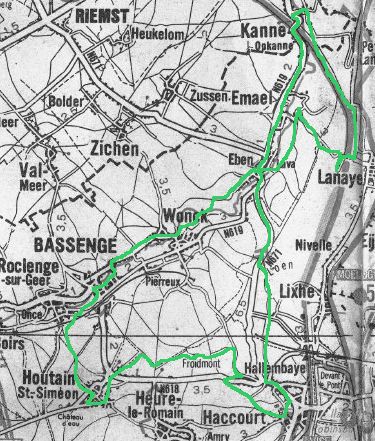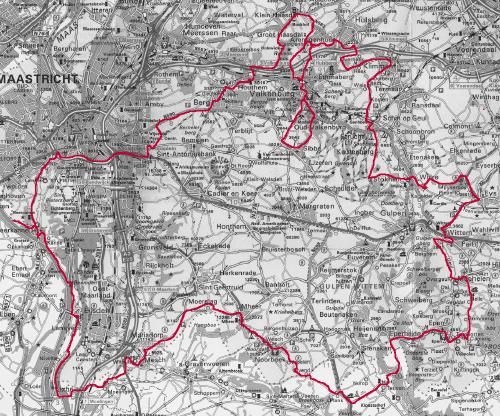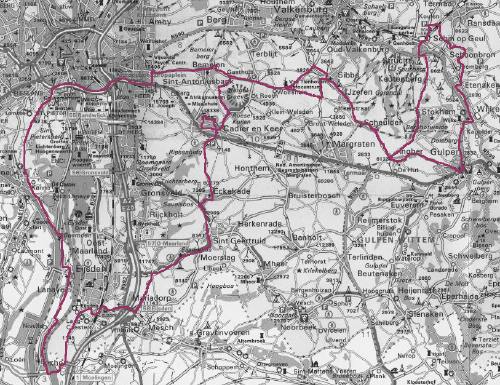And then I also read Reconstruction in Philosophy of John Dewey. It’s a collection of lectures, given in Tokyo, in 1920, shortly after the First World War. I picked it up because it was the only Dewey-book in the Jan van Eyck-library. It might not be among Dewey’s main works, but I found it extremely inspiring and clear and accessible — in fact it is a perfect introduction into philosophy from the standpoint of pragmatism. Well, I’d say it’s the best introduction to philosophy I ever read. Wish I’d read this when I was 18.
Dewey outlines very clearly how the divide between theoretical knowledge and practical knowledge came about; what is wrong with the philosophical antitheses of reason and experience, ideal and real. What is wrong with the spectator view of knowledge; what is the importance of the scientific method. What is wrong with the divisions like art/imagination/aesthetics on the one hand and science/practical knowledge on the other. Et cetera.
Of course there are problems as well with Dewey’s approach, and a few times he seems to come close to a sort of optimistic view of life that reminds one a bit of self-help books. But that seems to be the price to pay when philosophy is reconstructed from practical life…
“If this lecture succeeds in leaving in your mind as a reasonable hypothesis the idea that philosophy originated not out of intellectual material, but out of social and emotional material, it will also succeed in leaving with you a changed attitude toward traditional philosophies.” p. 25
Then Dewey goes on to describe Bacon’s scientific method and its importance for changing philosophy and the concept of knowledge: away from relying on tradition; involvement with the processes of life. Actually the reconstruction in philosophy that Dewey is after is “the endeavor to undo the entanglement [– that philosophy is caught in, due to the impossible combination of Baconian method and older traditions –] and to permit the Baconian aspirations to come to a free and unhindered expression.” p. 52
“True method, that which Bacon would usher in, is comparable to the operation of the bee who, like the ant, collects material from the external world, but unlike that industrious creature attacks and modifies the collected stuff in order to make it yield its hidden treasure.” p. 32
(Pragmatism is not common sense philosophy, on the contrary).
“Men who are thrown back upon “common sense” when they appeal to philosophy for some general guidance are likely to fall back on routine, the force of some personality, strong leadership or on the pressure of momentary circumstances.” p. 100
“In fact, the whole conception of knowledge as beholding and noting is fundamentally an idea connected with esthetic enjoyment and appreciation where the environment is beautiful and life is serene, and with esthetic repulsion and depreciation where life id troubled, nature morose and hard.” p. 115-116
“When the belief that knowledge is active and operative takes hold of men, the ideal realm is no longer something aloof and separate; it is rather the collective of imagined possibilities that stimultates men to new efforts and realizations.” p. 118
“If knowing were habitually conceived of as an active and operative, after the analogy of experiment guided by hypothesis, or of invention guided by imagination of some possibility, it is not too much to say that the first effect would be to emancipate philosophy from all the epistemological puzzles which now perplex it.” p. 123 (This is 1920, so way before Popper, Feyerabend, Lakatos).
“[T]hinking takes it departure from specific conflicts in experience that occasion perplexity and trouble.” p. 138
“They [theories] are tools. As in the case of all tools, their value resides not in themselves but in their capacity to work shown in the consequences of their use.” p. 145
“If ideas, meanings, conceptions, notions, theories, systems are instrumental to an active reorganization of the given environment, to a removal of some specific trouble and perplexity, then the test of their validity and value lies in accomplishing this work. If they succeed in their office, they are reliable, sound, valid, good, true. If they fail to clear up confusion, to eliminate defects, if they increase confusion, uncertainty and evil when they are acted upon, then they are false, Confirmation, corrobation, verification lie in works, consequences.” p. 156
“Now it is true that social arrangements, laws, institutions are made for man, rather than that man is made for them; that they are means and agencies of human welfare and progress. But they are not means for obtaining something for individuals, not even happiness. They are means of creating individuals.” p. 194
“Society is the process of associating in such ways that experiences, ideas, emotions, values are transmitted and made common.” p. 207
Acoording to Dewey society is always ‘in the making’, it moves, it consists of communication of experience between individuals, hence both the individual and the organization (‘State’) are subordinate to this active process.
“[O]rganization is never an end in itself. It is a means of promoting association, of multiplying effective points of contact between persons, directing their intercourses into the modes of greatest fruitfulness.” p. 206-207.
All quotes from John Dewey, Reconstruction in Philosophy, Enlarged Edition, Beacon Press, Boston, 1948 (1920).


